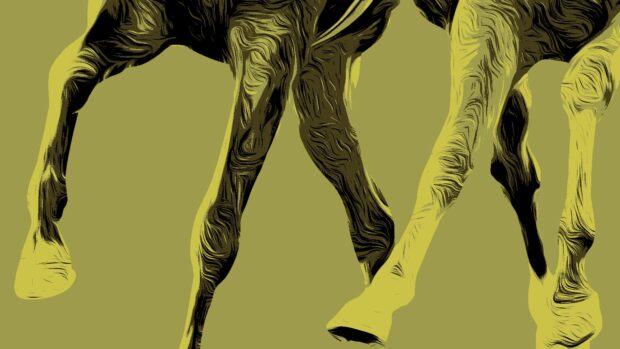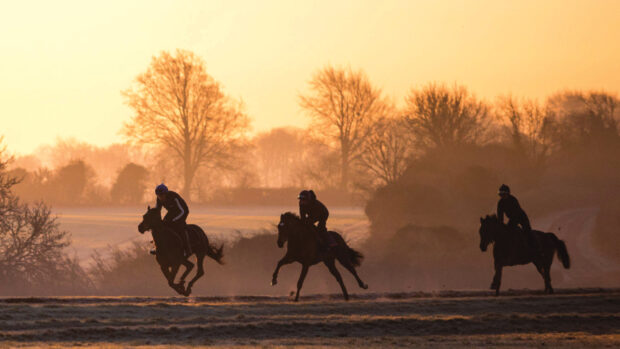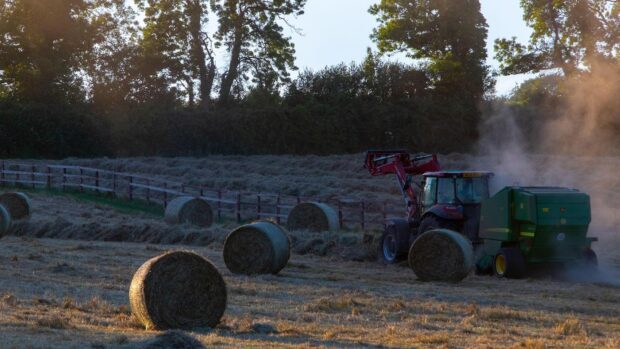Actions, not just words, are needed for horse sport to be relevant to the general public as times change.
That was an underpinning theme at the Racing Foundation conference (2 October), which brought together leading figures in the equine, racing and wider business world.
The overarching focus of the conference was on how racing can navigate retaining its social licence amid changing societal expectations.
“Sport is changing, sport is evolving,” said Nevin Truesdale, chief executive of The Jockey Club, who spoke about changes to the Grand National including a reduction in the number of runners and moving the first fence closer to the start.
“Sport is evolving because society’s expectations of sport are changing, and the Grand National is right in the centre of that.
“That’s what we as a sport need to accept as the challenge, realise, and act to be able to tell our story accordingly. While, in [the Grand National’s] case, maintaining the uniqueness of this wonderful race […] and something that people want to continue to engage with.”
He referenced a survey in 2023, involving more than 1,300 people, which found that 56% of those asked were quite concerned, not very concerned or have not made up their minds about horse welfare in racing. He referred to this as an opportunity as a “persuadable” group.
On the other side, Mr Truesdale also highlighted that YouGov polling shows public perception of the National “has worsened”; 39% of those asked in 2010 thought the race was “fairly cruel or very cruel”, which rose to 54% just after last year’s race.
“So if this sport is to be sustainable in the long term, it makes evolving the race, changing these things even more resonant,” he said.
He added that he sees the changes “as evolution” and while the measures for the 2024 race were “more eye-catching perhaps than we’ve done in the past”, they built on previous changes – particularly those in 2012/13.
“There was lots of mixed reception – it’s not the same race, you’re dumbing it down, all of this sort of stuff. But I bring you back to society’s expectations and the need to evolve with those […] I would contend that without those changes, the race would be in a very different place over that 10-, 12-year period to where it is now.”
Mr Truesdale said the 2024 race showed the “best set out outcomes we’ve seen for a very long time”, adding: “It’s definitely a promising outcome from the changes we made, but much too early to say that this has all worked. You’ve got to go on more than one year’s stats.
“I believe the changes they came up with were balanced, judicious and definitely needed for the protection and the evolution of this race.
“It’s the continuation of a big journey. It’s never done, but it’s a race we are, and we should all be, extremely proud of.
“It’s the main shop window of our sport, and it’s a race we need to preserve and protect, but it’s also a race that we need to maintain its acceptability to society. It is one of racing’s, indeed Britain’s, biggest sporting assets, and our job is to preserve it, look after it, evolve it, and improve it.”
What also stood out were some of the proactive, real-life moves by certain pockets within the sister industries.
Riding for the Disabled Association (RDA) chief executive Michael Bishop spoke to H&H in August about the importance of horses’ relevance in society, when looking to the future (news, 15 August).
He reiterated that point during the conference, with further real-life examples of how horses have changed peoples’ lives – and inspired those people to spread the word further.
“We represent many of the organisations with a stake in this world. What can your organisation do to maintain social relevance?” he said. “How can your organisation provide support or enhance what it already does to support access to horses? I truly believe the future of racing depends on that social relevance and providing that access.”
There are initiatives already taking place, for example, National Racehorse Week and open days, which allow people behind the gates of racing yards. But there are also struggles – the decreasing number of riding schools was highlighted, and why the industry must support them. Other ideas included working harder to forge links with local communities, perhaps building a fan base for horses or yards in a similar way to how people support the local football club.
Dom Matcham, founder and managing director of Invades – a company that brings thousands of students and alumni to sporting and music events – gave a fresh perspective.
Invades has sold 350,000 tickets since 2019 across UK, Ireland, Australia and New Zealand, and 90% of customers are attending that sport for the first time. It repackages unsold ticketing capacity from venues into an “end-to-end” package, so it also sorts return transport – which he says is essential.
“Our goal has always been, how can we make these sports more accessible, affordable and fun than going independently or directly?” said Mr Matcham, adding that 80% of tickets sold have been for racedays.
He said that in the long term, the hope is that students go on to have good jobs and healthy disposable incomes, adding: “Having been to the races with their friends at university, we hope to have sparked an interest in sport that means they will return to the racecourse in future.
“The more people we put through this process, the more chance we have of retaining them in the sport.
“I think racing needs to be more focused on creating unique experiences on course, which stimulates fans to share content [online].
“Turning customers into billboards is not only the most effective way to sell a product, it’s also the most effective way to create long-term acceptability. We need to make customers feel like rock stars and give them the reason to share.”
He added: “There is too much doom and gloom in our industry. It’s time to bring back life, energy and passion, because from where I’m sitting, more young people than ever are wanting a day at the races.”
What do you think? Share you experiences by emailing hhletters@futurenet.com, including your name, nearest town and country, for the chance for your letter to appear in a forthcoming issue of the magazine
- To stay up to date with all the breaking news throughout Maryland, London International and more, subscribe to the Horse & Hound website
You may also be interested in:

Subscribe to Horse & Hound magazine today – and enjoy unlimited website access all year round

Why horses’ relevance to the public is key to our sport’s survival

Horses’ ‘magical’ lifeline for young people could help our sport thrive





